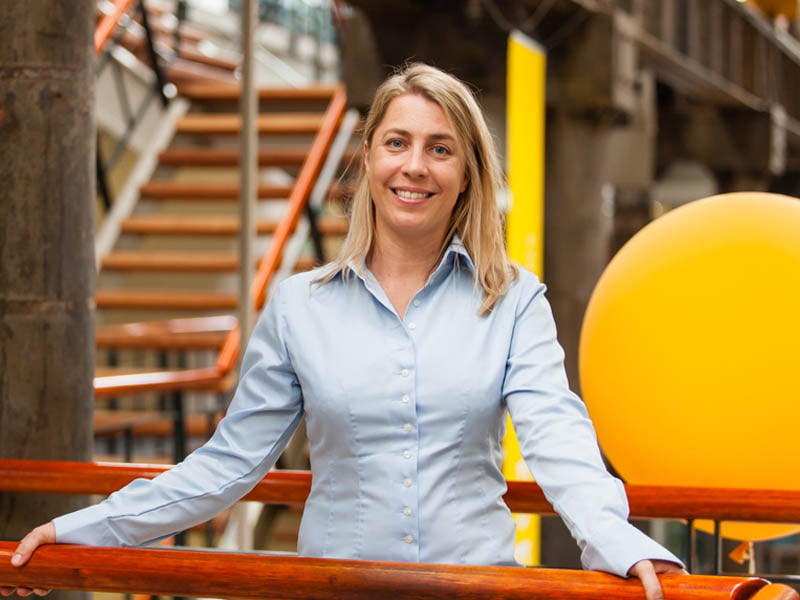Australia needs to pick up the pace in creating gender diversity within the tech and innovation sector or lose global competitiveness in this critical arena.
While International Women’s Day this week puts the spotlight on the obvious human rights issues around gender diversity, there’s also the practical side of how Australian business especially needs to lift its game on the issue.
“Science is a great leveller and from a gender perspective we have some very smart women in STEM,” says Sue MacLeman chief executive of MTPConnect a not-for-profit advocacy body for the medtech, pharma and biotech sector established as one of the Federal government’s Industry Growth Centre initiatives.

“But the issue for us is a lot of our ASX listed companies in the medtech, pharma and biotech sector don’t have many female CEOs or more than one female board member. That needs to change and we know that with more diversity you get better business outcomes,” says Ms MacLeman, who has more than 26 years’ experience in MPT.
Making gender diversity happen has plenty of advocates on both sides of the do it on merit or do it by quota schools of thought.
Labor deputy leader Tanya Plibersek strongly argued the quota case this week in a speech to National Press Club where she pointed out the Labor side of Federal politics was at 47 percent female involvement outnumbering Coalition women MPs by two to one.
Ms MacLeman falls on the merits side of the argument but also says the gender diversity rate of change in Australia needs to lift.
“I am an advocate for that to be done on merit and on skills and expertise but I think that its not moving fast enough and it needs to be better,” says Ms McLeman who argues that there are many female candidates for board slots right now.
What’s missing is a method for putting those women on the radar.
Ms MacLeman is an advocate for using a non-legally liable ‘board observer’ position to be brought in by Australian businesses that would see a woman sit across from a formal chair of a company to get insights into how the position operates.
She also advocates having female Phd candidates in STEM related disciplines having 12 months where they can hook up with a senior male or female MPT executive to get a feel for how the sector works in a business sense.
Petra Andren whose day job is CEO of Sydney-based tech incubator Cicada Innovations has been on the road this week talking to NSW secondary school girls about tech careers and the need for diversity in the sector.
“Diverse teams perform better, there’s loads of scientific research to show that,” says Ms Andren who is a Swedish expat.
“Sweden is the most gender equal country in the world and I grew up not having those implicit biases that kids in Australia grow up with, including my daughter,” she says. Having also worked in Germany and the US before settling here, Ms Andren says Australia is the most backward country she has lived in when it comes to gender diversity.
The problems begin early for Australian women.
Ms Andren’s daughter Mia – who turned seven recently – had a day where the kids could dress up as either a mathematician, artist or scientist and Mia was the only girl in her year who came dressed as a scientist.
“I was so proud of her, but she was devastated, all the girls came as artists.”
That incident helped motivate Ms Andren to go on a STEM for girls promoting tour of NSW secondary schools this week.
“I’ve got a vested interest in this so I thought right, I’d better go out and do something about it,” she says.
What she has seen on tour has alarmed her with the feedback from many girls being that STEM professions are not for them.
“When you talk to girls between 12 and 18, they still think they have to make a choice between having a career and having a family and that is really disturbing,” she said.
“The other thing is they don’t see STEM careers as being suitable for females. They give reasons like it seems too hard and they have got nobody in their family too look up to in that regard.”
Ms Andren believes creating diversity in STEM careers here requires strong female role models standing up and demonstrating what’s possible and a change in parental leave arrangements to give men a chance at early childhood parenting.
“We need to show more female role models,” she says.
“I think the key thing is opening up parental leave to fathers. Swedish men spend an average of six months with their newborns by law and that leads to more co-parenting.
“There was a photo exhibition in Sydney recently about Swedish dads. They called it porn for Australian mums, it was so popular they extended it for three weeks.”
Do you know more? Contact James Riley via Email.

